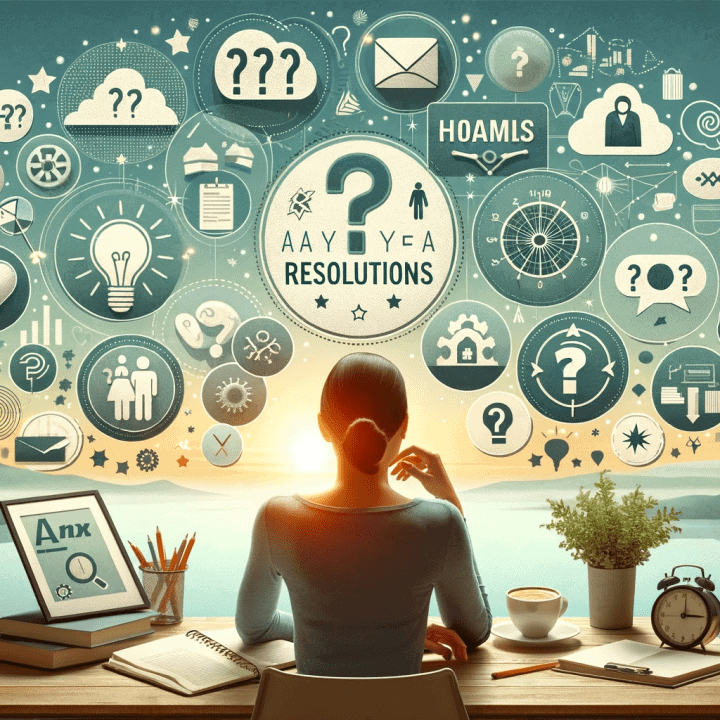An Interview With Chris And Jules Collingwood 2002
1. Who is the Master Practitioner of Neuro-Linguistic Programming training for?
Master Practitioner is for anyone who has done NLP Practitioner training and wants to take their NLP further. Master Practitioner is an advanced training for practitioners of NLP who want to enrich, refine, deepen and generalise their NLP skills. It will give them a thorough experience and understanding of the underlying patterning of NLP and develop their ability to model anything of interest to them. (Modelling is the heart of the field of NLP.) Master Practitioners can create and develop specific applications of NLP to any area of personal or business interest and have sufficient skills in NLP change work to enter private practice if they wish.
We have had business people, educators, engineers, information technology specialists, doctors, nurses, filmmakers, solicitors, bankers, marketers, salespeople, psychologists, yoga teachers, personal trainers, sports and life coaches participate in our Master Practitioner trainings.
2. What are the personal and professional benefits of doing Master Practitioner training with Chris and Jules?
As you discovered on completing a comprehensive NLP Practitioner training, NLP made a significant change to all areas of your life. Our Master practitioner training will support your continued development and extend and deepen the process begun on Practitioner. You will be able to apply the advanced patterns of NLP learned in this training to your ongoing personal development, your profession or business. You will also be able to develop interventions for any context from first principles.
Specifically, you will learn patterns that can be applied to enhancing your relationships with family, friends and the people you work with, improved communication skills, negotiation skills, cognitive ability and organisational skills.
More importantly, you will learn to detect patterns and build models of human behaviour for yourself. As a result you will be able to evolve your skills in an ongoing way after the training period has finished. Being able to model means you can learn anything under your own direction. Think of some of the people you have met who have wonderful skills and thinking patterns. Would you like to be able to model these for yourself or to transfer them to other people? The ability to model your own and other people’s skills and patterns opens up the doorway to a wide range of human excellence suited to any area of life where you want to enhance or develop your performance.
3. What is the purpose of this training?
The purpose of our Master Practitioner training is to create a context for you to deepen your appreciation of NLP as an epistemology with all the practical benefits that entails. In addition, you will have the opportunity to enhance your skill development in any areas of your life through learning to model and generalise NLP patterning into how you are in the world, how you do in the world and how you think.
4. How specifically is Master Practitioner training with Chris and Jules Collingwood different from other Master Practitioner trainings within the NLP community?
This is a non-trivial question and can be broken up into the following; an emergent learning approach to learning NLP, developing a practical, flexible and generalised application of NLP, an emphasis on learning how to model yourself and others and an exploration of the epistemology of NLP.
Emergent learning
All our certification courses are structured around the core competency of NLP modelling. We model what we teach and create contexts for discovery of patterns in action. Participants experience the patterns through live exposure or ‘first access’ (Grinder & Bostic St Clair, 2001) in all senses through exercises, games and tasks.
It is our intention that participants experience the patterns of NLP before acquiring conscious understanding and labelling for them. Our emphasis is always on replicating the skill or pattern in question, not talking about it and not reproducing a scripted format. Participants experience emergence of NLP patterning in their daily life, from which appropriate emergent understandings then follow. We call this approach ’emergent learning’.
We have a friend who models languages and cultures using an emergent modelling process. He is a socio-linguist who now speaks a number of Asian languages. When he enters a culture to learn a language he puts aside his first language, (in his case English), opens his peripheral vision and turns off his internal dialogue. He adjusts his physiology to match the people around him and enters into a rich sensory experience (First Access) of the context. He is able to experience the gestalt without conscious evaluation and without his usual linguistic filters (English). Within three months, he has first fluency in the target language (the ability to hold basic conversations with members of that culture). At this stage, he is unable to translate to and from the new language. He is very comfortable with delayed conscious understanding as his outcome is fluency in that language with appropriate gestures, accent and cultural presuppositions. His learning of the language is through First Access, not linguistic translation, (secondary representation), as commonly experienced in language labs. His accent is of the place where he modelled the language.
Practical ability and flexibility in doing NLP
The emergent approach to learning NLP enables the user to communicate spontaneously and naturally, with their own style and vocabulary. A practitioner can respond flexibly to the patterns they observe in other people’s communication instead of relying on scripted formats (NLP techniques). When applying NLP to themselves, the practitioner is able to self-model, (track and transform their own patterns and/or code) and to demonstrate new patterns of behaviour.
Emphasis on learning how to model
The emphasis in our Master Practitioner training is on learning to model yourself and others, and on developing an experiential (first) and conceptual (second) understanding of the epistemology of NLP.
The epistemology of NLP
Epistemology is the study of how we know what we know. Accordingly, the epistemology of NLP is how we know what we know in the field of NLP. Having a rich, explicit understanding of the epistemological foundations of NLP is of fundamental importance for Master Practitioners of NLP. This supports Master Practitioners in modelling human excellence and developing new applications of NLP. It facilitates Master Practitioners and NLP trainers in contributing new models and applications of NLP to the field of NLP. If you are going to teach NLP, you have a responsibility to know and demonstrate your material. The foundation for developing a rigorous conceptual understanding of the epistemology of NLP is to have NLP patterning integrated unconsciously in your thinking before conscious understanding occurs, and to have learned pattern-modelling skills as an unconscious competence. While it is possible for people to work their way back to experiential skill from conceptual understanding, the process takes longer and carries a serious risk of distorting NLP as an epistemology and methodology for modelling human excellence.
Trying to understand NLP consciously, without prior comprehensive experiential immersion in the patterning, usually leads to poor skills and misunderstanding of NLP. This is evident in parts of the NLP community today where epistemologically shoddy models, content descriptions, and trainers’ personal philosophies are being passed off as NLP. This leads to poor outcomes for trainees and misrepresentation of the field itself! If trainers wish to teach NLP, they have a duty of care to the field and to their students to teach the epistemology of NLP as part of their certification trainings. If they are unwilling or unable to do so then they have a responsibility to state that their offering is a particular application of NLP and not a course in formal NLP.
One part of Self-modelling is significant personal development through exploring and changing your self-concept
Part of the training is a section on formal self-modelling by exploring, transforming and developing your self-concept. The function of this element of the Master Practitioner training is personal development. Participants have an opportunity to explore experientially, model, then make explicit significant patterns, perceptual filters and intentions (values) that have been incorporated into their maps of self, their self concept. Participants then have the opportunity to work with each other to transform any limiting patterns. We will be drawing on methods developed by Steve Andreas to incorporate and generalise new qualities, behaviours and skills into one’s self-concept.
5. Your Master Practitioner training has an emphasis on modelling? How can learning to Model be of benefit my life?
If you have the ability to create practical models of human excellence, then you have the leverage to learn any desirable skill that you want. The task then becomes one of finding suitable models of excellence, with expertise in the skills that you want.
You will learn to identify models of excellence, arrange a modelling project, take an unconscious uptake of the skill, replicate and create an appropriate description of the skill in a code that supports transfer of that skill to others. We will also explore how to carve up the skill into exercises and formats (appropriately chunk the model) once you have the model for teaching that skill to other people.
If you want to develop one or more applications of NLP and to do so successfully, it is necessary to have a well-elaborated ability to model. Being able to model gives you the means to create your own applications rather than depend solely on existing NLP applications developed by other people. Some of our Master Practitioner graduates have extended their modelling projects into comprehensive applications of NLP. One of our graduates, Geoff Wade, modelled three superb sales people. After completing the training he extended the project and created a new application of NLP to sales. He has written a book on selling, which is about to be published. It is the most wonderful book I have read on applying NLP to high value added sales.
If you decide to attend our Master Practitioner training, choose your models for your modelling project with care and it could result in a very valuable application of NLP. You have an opportunity to make both a significant contribution to yourself and to the NLP community at the same time.
6. How are student’s skills evaluated?
For Master Practitioner certification, there are 3 forms of evaluation
The first is experiential evaluation over the last 2 days of training. During this period, we assess the skills that have been taught experientially. The two days include practical exercises, a full piece of work to a client’s specification and a short presentation on an aspect of NLP to be determined at the time.
The second assessment piece is the completion of a modelling project within 3 months of the end of the training. The third assessment piece is a conceptual evaluation in the form of written answers to a set of questions based on the required texts and the Practitioner and Master Practitioner training materials.
We recommend that students wait until the end of the course before doing the set reading and completing the conceptual evaluation. We emphasise the importance of experiential learning as the foundation for conceptual understandings. You may have met people who can talk a lot about NLP yet do it poorly if at all. Our intention with all our certification trainings is the development of students’ skills in NLP.
7. Are there any special benefits for graduates of the Master Practitioner training?
Repeating the training
We want the people who participate in our certification trainings to become excellent in doing NLP. Repeated exposure to NLP patterning and practising formal NLP training drills develops skill in NLP, so we encourage and support Master Practitioner graduates to repeat the course. Apart from charging a small fee ($5.00 per day approx) to cover expenses such as tea and coffee, repeating the course is free and includes extra tuition in coaching skills and sensory acuity for those who function as trainers’ assistants.
The opportunity to become a Life Coach
For Master Practitioner and Practitioner of Ericksonian Hypnosis graduates who demonstrate a high level of skill with their NLP we may offer the opportunity to be an Inspiritive Life Coach and have the benefits of being marketed through our NLP resource website.
8. I have seen trainings of 10 days advertised as Master Practitioner Certification. Your training is 20 days. What is the value in having 20 days for the Master Practitioner training?
In the interest of a high level of skill development in modelling self and others during this training, we will be creating a rich multi-description of the NLP patterning through a broad range of presentations, metaphors, exercises and discovery games. With advanced language patterns, advanced processes, process design, construction and deconstruction as well as modelling, self-concept work and personality mapping, we would prefer 24 days but contain it in a nominal 20. Most years, we offer free extra evening sessions between course sessions to complete the personality mapping component.
© 2002 Chris and Jules Collingwood
Please note that Master Practitioner of NLP training has been replaced by the new post-graduate qualification – 1-250NAT Graduate Certificate in Neuro-Linguistic Programming.
Authors:
Christopher Collingwood Dip Training and Assessment Systems, BA, Grad Cert NLP., MAppSci Social Ecology, NLP Trainer Assessor
Jules Collingwood Dip Training and Assessment Systems,Cert TEFL, RN, BSc, Grad Cert NLP., Postgrad Dip Conflict Resolution, NLP Trainer Assessor
Training Programmes:
10970NAT Graduate Certificate in Neuro-Linguistic Programming information for Sydney, Melbourne and Brisbane
Further reading:
The NLP Field Guide; Part 1. A reference manual of practitioner level patterns, by Chris and Jules Collingwood
Related articles
Learn more about NLP, read our Ultimate Compendium of NLP
Similar Posts
Subscribe Now!
Stay Up-to-Date with Our Latest Courses and Special Offers
Stay in the loop with new course releases and opportunities by completing our form. Never miss out!


